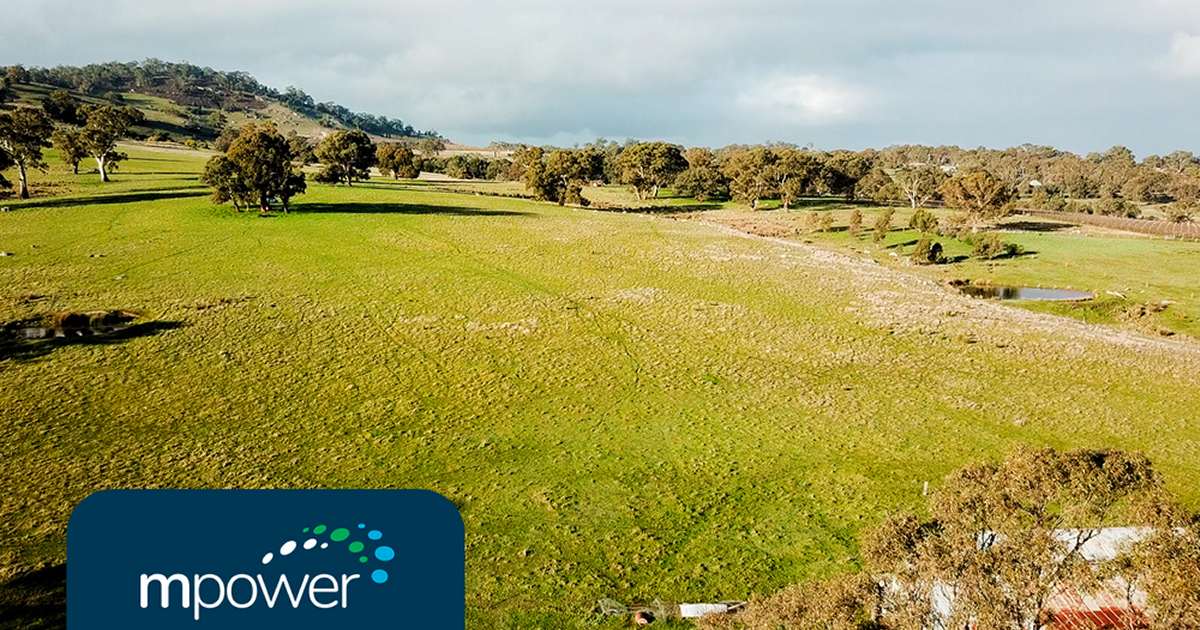
It’s taken a while and there’s still nothing to see yet, but work should start soon on Sydney-headquartered MPower’s Faraday Renewable Energy Project in Victoria.
MPower specialises in the development, construction and operation of renewable energy facilities, and has a predilection for small solar farms. The Faraday Renewable Energy Project is a now-shovel-ready 5 MW solar power station project to be situated near the town of Faraday in Victoria, which is around 116 kilometres from Melbourne. It will cover an area of 14 hectares and incorporate 11,000 bifacial solar panels.
Bifacial modules are able to harvest light from the back of the panel as well as the front. It’s not such a great feature for home solar installs where the panels are generally installed flush with the roof, but can be particularly useful in projects where panels are raised at an angle from the surface on which they are mounted – e.g. ground-mount solar farms.
Bifacial solar panels have the potential to generate significantly more energy compared to monofacial panels. Like monofacial modules, this will depend on factors including angle/tilt and orientation/direction of the panels, but also the reflectivity of the ground surface.
Faraday is expected to generate more than 11,500MWh annually.
Back in November 2021, MPower announced it had executed a binding purchase agreement for Faraday. All good things take time as they say, but now the company now has all the necessary development permits – which is in accordance with the original purchase agreement. With all the boxes ticked, the company announced yesterday acquisition of the Faraday Renewable Energy Project has been completed.
It was previously envisaged construction would start in 2022, but it looks like 2023 will be the year Faraday will go from shovel-ready to shovels in the ground.
Everything Seems Tickety-BOO At MPower
MPower CEO Nathan Wise said the Faraday project aligns with the firm’s Build Own Operate (BOO) strategy, which will see a network of 5MW projects constructed in regional areas with strong demand.
“We are very encouraged by the corporate and operational progress we have made in recent months and look forward to providing more meaningful updates for both Faraday and our broader portfolio strategy in the current quarter,” he stated.
MPower has a portfolio of more than 10 project sites across New South Wales, Victoria, Queensland and South Australia – both its own projects and those carried out for others.
Another recent MPower acquisition is the Lakeland solar + storage project located in Cooktown Shire, North Queensland. Operational since 2017, it comprises a 10.8MWac solar farm and 1.4MW/5.3MWh lithium-ion battery storage facility. There’s a long-term power purchase agreement (PPA) with Origin Energy in place for 100% of the solar power output from Lakeland.
The existing revenue stream from Lakeland made the project particularly attractive to MPower, but it had also identified cost-saving opportunities through infrastructure upgrades and the implementation of the firm’s proprietary remote monitoring and control technology – which will also be used at Faraday. Those opportunities have been seized and in November last year the company stated more than $500,000 in annual costs have been slashed. It’s quite a chunk of change given the small size of the project.
In addition to solar/battery projects, MPower delivers hybrid power and backup systems, plus asset management and preventative maintenance for corporate and government customers.

 RSS - Posts
RSS - Posts



Speak Your Mind